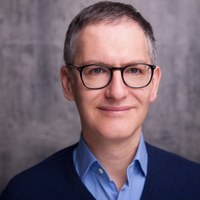According to the report of the European University Association Council for Doctoral Education (EUA-CDE), in 2006 only 29 percent of European universities offered some form of structured doctoral education. Twelve years later the figure is almost 90 per cent. In his lecture entitled “Doctoral Education in Europe and Landscape of Doctoral Schools,” Doctor Alexander Hasgall, Head of European University Association Council for Doctoral Education, will talk about a diverse landscape of doctoral education in Europe that has arisen in the last decade.
The lecture, organized by SWPS University's Interdisciplinary Doctoral Program is a part of the series The Challenges of the Humanities of the 21st Century.
The lecture will be conducted in English. Free admission.
Doctoral Education in Europe and Landscape of Doctoral Schools
The doctorate is a century-old tradition in Europe. Originally awarded as a license to teach (docere), doctoral education today aspires to train researchers who are independent and critical thinkers prepared for multiple roles in- and outside of academia. In the last two decades, the establishment of doctoral schools or similar structures in most European Universities has provided some additional structure to support this process. In light of these developments, it is worthwhile to ask the question of where the doctorate stands in Europe today and to what extent expectations have been met and concerns have been addressed.
Based on a current survey on doctoral education in Europe, Doctor Hasgall will show how in the last decade a diverse landscape of doctoral education in Europe has developed. Doctoral schools have become “meeting places”, where institutions, disciplines and scholars meet, exchange and work together. He will explain how the Social Sciences and Humanities, with their diverse approaches to research and its outcomes, can benefit from these developments and what challenges lie ahead.

Speaker
Alexander Hasgall – since fall 2017 Head of the EUA Council for Doctoral Education. He is responsible for a network of more than 240 European Universities from 35 countries, dedicated to the further development and strengthening of doctoral education and research training in Europe.
Before assuming this position, he coordinated the “Performances de la recherché en sciences humaines et socials” (CUS-P3) program of the Swiss University Rectors conference and was based in the University of Geneva. In this role, he was responsible for a collaborative program of all Swiss Universities on the impact and evaluation of research in the humanities and social sciences.
He studied philosophy and history at the University of Zurich and the Free University of Berlin. He received his Doctorate in History at the University of Zurich on the history and discourse of transitional justice in Argentina. Outside of the higher education sector, Doctor Hasgall gained professional experience in the NGO-Sector, market research and a s a freelance journalist.
We are very pleased to inaugurate 2018/2019 academic year at Interdisciplinary Doctoral School with a lecture by Doctor Alexander Hasgall, Head of the EUA Council for Doctoral Education.
Izabela Grabowska, Associate Professor, Director of Interdisciplinary Doctoral Program
The Challenges of the Humanities of the 21st Century
“The Challenges of Humanities of the 21st Century” is a series of lectures by distinguished specialists, who represent various disciplines from the field of humanities. The events are aimed at students of SWPS University's Interdisciplinary Doctoral Program, however all interested parties are welcome. The format includes post-lecture informal discussions on topics presented by the invited experts. The friendly atmosphere of the events is conducive to networking, which lends itself to opportunities of future internships at universities or research centers around the world.
Doctoral Studies at SWPS University
Doctoral Studies at SWPS University are directed to people interested in an academic career and also to those, who would like to continue their education and personal development in support of their career advancement. The interdisciplinary character of our programs allows students to participate in projects from various disciplines. Our doctoral students collaborate with scholars from the best research centers in Poland and around the world. The master-apprentice approach guarantees that each student receives individual attention and professional support.
Date and Location
October 13, 2018 at 11.00, room S305
Chodakowska 19/31, 03-815 Warsaw, Poland
Organizer
SWPS University's Interdisciplinary Doctoral Studies Program